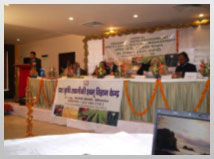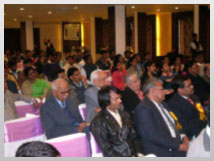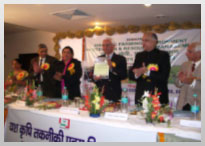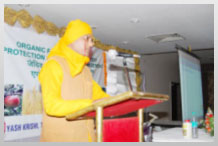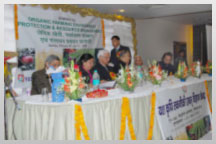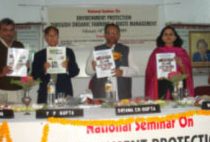Food is next to water & air in importance for subsistence of human life on earth. With the increasing human population all the over the World, food is becoming a scarce resource day by day and this is going to be scarcer in the days to come. Further, with the shrinking cultivable land resources, the demand to produce more and more food produce per unit area has resulted Agriculture becoming heavily dependent on chemical inputs viz. FERTILIZERS as source for plant nutrients and PESTICIDES for protection of crops from pests & diseases. In as much as, the above are being increasingly & indiscriminately used they are posing a threat to life and environment. Besides, this dumping of chemicals in environment is also destroying so many microorganisms, birds, insects which were beneficial to farmers. With farming becoming chemically intensive, the lands are becoming barren and the poor farmers are finding themselves entangled in increased debts.
FARMING traditionally means organized cultivation of selected crops- mainly to meet the three basic needs of man- i.e. food, shelter and clothing. To avoid hazardous effects of these pesticides, other soft and eco-friendly methods in crop production must be adopted. ORGANIC FARMING, therefore, is a necessity now, which must be practiced for all kinds of crop cultivation. Organic farming means Production of Qualitative Product, free from any hazard of residual toxicity, produced in harmony with nature. Organic farming reduces the input cost as it reduces the farmer’s dependence on costly chemicals, generates plenty of rural employment through in-sourcing rather than outsourcing (like producing vermin-compost etc, herbal pest repellants). Organic farming also establishes an ecological balance with nature and takes a proactive approach towards environment. Besides the global market for organic products by 2010 is expected to be around 35 billion US dollars.
Second aspect in the seminar is Environment Protection and Resource Management. As a consequence of use of chemical FERTILIZERS and PESTICIDES for growth and protection of crops, pollution level of food products, soil, water & air is increasing at a very fast rate. As we directly use water for drinking and eat food every day, all this is posing a serious threat to man & environment. As per WHO survey, India was ranked 120th in a list of 122 nations of the world, evaluated for water quality having more than specified tolerance limits of nitrates and pesticides. These aspects have been discussed in the seminar and recommendations were made.

